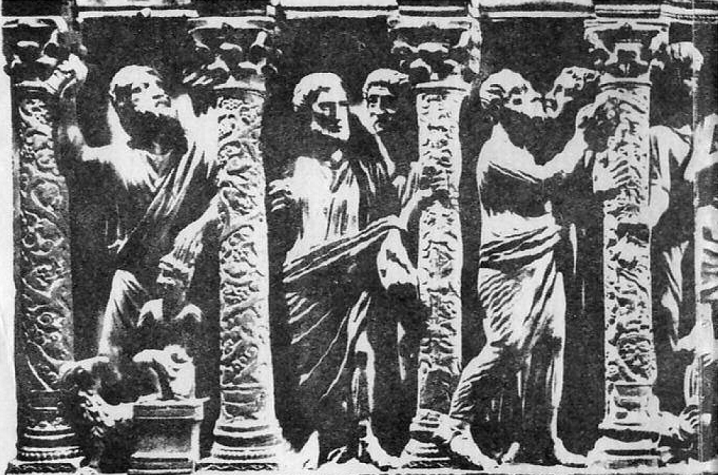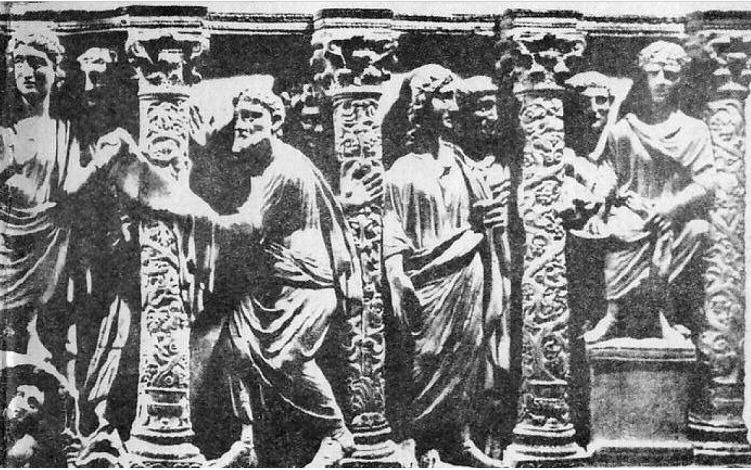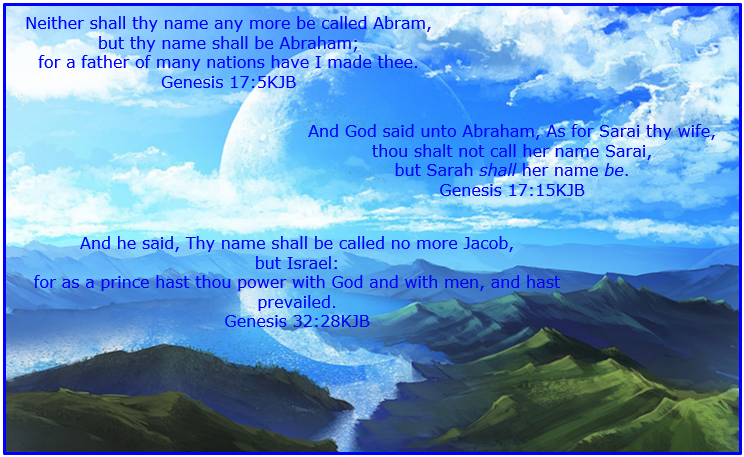Written by W.G. Finlay


Posted and images added by Jackie
CHAPTER TWO
THE WORD AND THE SHEEP
As has been noted earlier, the LORD has declared His intention to “search out and seek” His sheep (Ezekiel 34:11) which clearly identifies the Israel people who, at that time, had become lost within the maze of orthodoxy and were utterly bewildered by the indictments of the LORD spoken through the prophets.
- “I hearkened and heard, but they spake not aright: no man repented him of his wickedness, saying, What have I done? every one turned to his course, as the horse rusheth into the battle”. (Jeremiah 8:6)
Thus, twelve-tribed Israel were called “My sheep” by the Lord, (Ezekiel 34:12) before any such nation or people called Judeans or Jews came into existence. Yet today, orthodox Christianity is most insistent that Christ, Whom they call a Jew, came to and for the Jews who rejected Him, thus forcing Him to turn to the Gentiles. It should be stated with all emphasis that this is a complete perversion of the Gospel account, for nowhere did the Lord ever entertain such thoughts as are propagated by orthodoxy as the facts concerning His Advent. He, Whose foreknowledge of the future is clearly demonstrated in the Gospel accounts of His Ministry, never once supported such doctrines as have been ecclesiastically conjured up and based on Paul’s epistles.
If the Christ of God came to and for the Jews as stated by Paul,
- “For I am not ashamed of the gospel of Christ: for it is the power of God unto salvation to every one that believeth; to the Jew first, and also to the Greek”. (Romans 1:16)
there is surely something very awry with the Gospel accounts. It will be recalled that after encouraging the Jews to admit:
- “We be Abraham’s seed, and we were not in bondage to any man”. (John 8:33)
– all Israel (the “sheep” of the LORD) had been in bondage to the Pharaoh in Egypt and had separately been in bondage to the king of Assyria and the king of Babylon – after extracting his admission from them.
- He stated :”And because I tell you the truth, Ye believe me not (John 8:45). The Lord then later amplified this by stating to the Jews: But ye believe not, because ye are not of my sheep, as I said unto you”. (John 10:26) –
Not only were they not His sheep, they were not OF His sheep, which surely debunks the notion held by many Israel Identity believers that the Jews are a part of Israel. Those that hold this view are witting or unwitting casualties of orthodoxy, which instead of believing what the Word Incarnate said, prefer the Pauline doctrine which stressed the importance – even the eminence – of preaching to the Jews first. (Romans 1:16; 2:9,10). Why the Gospel should be preached to the Jews first when the Lord Jesus Christ said that they were inherently opposed to the Truth and were “not of My sheep” is best left to the imagination.
FEED MY SHEEP
After He had completed His mission in John 17:4-8,
- “I have glorified thee on the earth: I have finished the work which thou gavest me to do. And now, O Father, glorify thou me with thine own self with the glory which I had with thee before the world was. I have manifested thy name unto the men which thou gavest me out of the world: thine they were, and thou gavest them me; and they have kept thy word. Now they have known that all things whatsoever thou hast given me are of thee”
and after He triumphed over the Death which the Jews had prescribed for Him, the Lord commissioned the surviving eleven Apostles in the words:
- Then said Jesus to them again, Peace be unto you: as my Father hath sent me, even so send I you. (John 20:21)
And there is no qualification concerning the Apostle’s Mission, one must assume that it was identical with that for which He had been sent. As though to reinforce this, the Lord then turned to Peter with the Command to “feed My sheep”; feed My lambs, and feed My sheep and as though to counter any future inclusion of all and sundry into the “sheep identity”, He had earlier established the existence of “sheep” before His Advent. All that ever came before me are thieves and robbers: but the sheep did not hear them. (John 10:8)
Against the background of the Commission of the Apostles, one should place the three and half year period of education and instruction which equipped them for their task. In the first instance and as the Gospel accounts make abundantly clear, the Lord was not indiscriminate in His selection of His Apostles – they were all with the possible exception of Judas Iscariot, Galileans as distinct from Judeans. Of the twelve chosen, Peter, James and John were separated, as though the Lord felt that these three should receive a deeper and more intimate education than the others – a fact which is certainly implied in several passages throughout the Gospels. For instance, Peter, James and John were specifically commanded by the Lord to be present when He raised the daughter of Jarius.
While they were the only ones to be taken on to the mount of Transfiguration where they “saw the Son of man coming in His Kingdom”
- And he suffered no man to follow him, save Peter, and James, and John the brother of James (Mark 5:37)
- “Verily I say unto you, There be some standing here, which shall not taste of death, till they see the Son of man coming in his kingdom”. (Matthew 16:28)
- “And after six days Jesus taketh Peter, James, and John his brother, and bringeth them up into an high mountain apart, And was transfigured before them: and his face did shine as the sun, and his raiment was white as the light”. (Matthew 17:1.2)
Of these three men, Peter appeared to have been promoted as the leader, although he certainly was not the first one called by the Lord.
THE SIGNIFICANCE OF PETER’S CALL
Of these three men, Peter appeared to have been promoted as the leader, although he certainly was not the first one called by the Lord.
- “And he brought him to Jesus. And when Jesus beheld him, he said, Thou art Simon the son of Jona: thou shalt be called Cephas, which is, by interpretation, A stone”. (John 1:42)
Cephas, it should be noted, is Aramaic whereas in the Greek language it is translated as Petros from which the English Peter is derived. Many, of course, are of the opinion that this name change reflected the future role of Peter as founder of the Christian Church (NOT the Catholic Church, catholic means universal, added by Jackie) and very few appear to equate this event with the Old Testament Abram and Sarai had their names changed. Genesis 17:5,15, and that Jacob who sired twelve sons had his name changed to “Israel” Genesis 32:28, thus giving substance and meaning to the National Purpose of the LORD when He formed His Covenant People.
Thus, as one looks at the name-changing feature, one cannot escape the conviction that name changes, especially authorised name changes, are related to the same purpose. The name “Simon” as any Bible Dictionary will relate means “hearer” and in calling a fisherman to His Service, the Lord endowed Peter with a name which meant “a stone”. A stone of course, a chip broken from a large rock and unless one is totally prejudiced against the Truth (as were the jews), Peter’s call and name-change, Israel had been divorced from the land for over four centuries and had become “wanderers among the nations” (Hosea 9:17 ) and in consequence of this had become blind to their national origins.
- “Hear, ye deaf; and look, ye blind, that ye may see”. (Isaiah 42:18)
Within this situation and because of it, the LORD directed a call to remembrance through Isaiah in which He said:
- “Hearken to me, ye that follow after righteousness, ye that seek the LORD: look unto the rock whence ye are hewn, and to the hole of the pit whence ye are digged. Look unto Abraham your father, and unto Sarah that bare you: for I called him alone, and blessed him, and increased him”. (Isaiah 51:1)
If one hews a chip from a rock, while becoming a stone it still retains its identity with the rock and if one relates this to Peter’s name-change and further equates this with the Lord’s stated purpose concerning His Advent, one can surely appreciate why Peter became the leader of the twelve who were sent, even as the Lord had been sent, to the “lost Sheep of the house of Israel”.
THE TWELVE AND THEIR MISSION
So then, twelve men were selected and Simon, whose name was changed to Cephas (Peter) with its Israel association, became their leader. According to the tenth chapter in Matthew’s Gospel these twelve men were named “Apostles” – the Greek word apostolos meaning “a delegate ”, a messenger” or one who is sent, as distinct from the Greek word matheteuo which is translated as “disciple” and literally means “a learner”, “one who is instructed” or “a pupil”. While there were many disciples, there were only twelve apostles and significantly – and again according to Matthew 10 – it was after they were called “apostles” that the Lord instructed them concerning the area of their office.
- ”Go not into the way of the Gentiles, and into any city of the Samaritans enter ye not: But go rather to the lost sheep of the house of Israel”. (Matthew 10:5,6)
While one is not told of the reaction of the apostles to this discriminating commission, it must have come as some surprise to them for while being Galileans, they would be familiar with the doctrine of proselytism which dominated the endavours of orthodoxy in Jerusalem. The commission to incorporating all and sundry into what they called “the Israel Community of God” and yet they now received a commission to go only to the “lost sheep” of the house of Israel, which certainly repudiated the universalism of Pharisaism. There can be very little doubt that if the Lord entertained any thoughts compatible with doctrines which were preached in His Name and which centred on the Pharisaic principle of creating a heterogeneous, universal “Israel Community of God” through proselytism or conversion, He certainly gave no indication of this. If He, toward the end of His Mission, has sponsored such a doctrine and had claimed that after His Death and Resurrection they, the Apostles, should go to all people converting them.
The Apostles would have been the most surprised men on earth. This, in effect, was precisely what the Pharisees were doing and which had earned for them the condemnation:
- “Woe unto you, scribes and Pharisees, hypocrites! for ye compass sea and land to make one proselyte, and when he is made, ye make him twofold more the child of hell than yourselves”. (Matthew 23:15)
Would the Apostles forget this condemnation? Would they forget the carefully circumscribed parameters of the Mission which the Lord had set for them? Would they renege on their apostolic mission and the very thing which the Lord condemned the Pharisees for doing?
According to John’s Gospel, which in the opinion of the majority of modern theologians was the last to be written and this after A.D 80, the last words of the Risen and Triumphant Lord to His eleven Apostles generally, and Peter specifically, was “feed My sheep”, and as He gave no indication that “My sheep” were any other than the same “lost sheep” of the house of Israel to whom He said He had been sent, the Apostles would surely interpret this commission received from the Lord. If they did in fact search out and seek the lost sheep of the house of Israel – “the dispersed among the nations” John 7:35 – the Bible has nothing to say about this. Instead, and according to the Revelation which the Lord gave to John on the isle of Patmos, the principles inherent in Pharisaism began to dominate and the Name of the Lord Jesus Christ became linked to the same mechanism which had earned His vigorous denunciation – proselytism.
In the second chapter of Revelation, John recorded that the Lord denounced the Christian assembly at Pergamos for allowing those “that hold the doctrine of the Nicolaitanes, which thing I hate.” (Revelation 2:15).
It was not only the “Nicolaitanes” themselves who were followers of the proselyte Nicolas (Acts 6:5) to which the Lord took exception but their doctrines which included, among other things, an intense but very subtle propaganda designed to thrust Zeus within the framework of Christianity. Thus, in Revelation one may see that a change has taken place and that the Lord’s commission to His Apostles had been discarded, and that priority was now given to “converting the Gentiles” – always providing they were not Israelites.
To be continued Part 3, chapter 3



